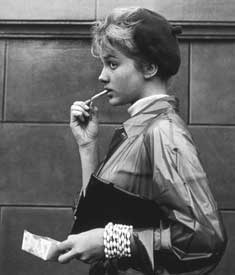This post is about the film "A Muppet Christmas Carol" (which I just saw for the nth time).
I had to take this out of a paper the other day (because it had nothing to do with my topic), but it might fit nicely here:
Speaking reductively, there will be only three authors in the English Canon: Shakespeare, Austen, and Dickens. Their works have all lived up to the real measure of canonical texts: their capacity to be reinvented, made relevant again, for latter-day audiences. Recent years have seen a number of films transposing Shakespeare and Jane Austen's plots into high schools (Clueless, Ten Things I Hate About You, and O retelling Emma, The Taming of the Shrew and Othello), and in turn, high school drama departments around the nation sense the urgency that could be conveyed by an "update" of Shakespeare into period analogues. Dickens sits less easily in this trend. It is impossible to conceive of a "mod" Bleak House or a Civil War Our Mutual Friend. Because the specific British reforms of the nineteenth century which Dickens tackled do not universalize well, and so much period and local detail transcends the incidental to become integral to the plot, his novels are almost unthinkable outside their Victorian context. Two obvious exceptions are A Christmas Carol, so capable of being universalized that it jumped over the category of human as to be acted out by Muppets in A Muppet Christmas Carol , the definitive orphan narrative Oliver Twist, which became the orphaned-kitten cartoon Oliver and Company. You will notice, however, that these children's versions, however clever, are still more juvenile than the high-school adaptations that crown Austen and Shakespeare's careers in reinvention. To which I propose that Dickens' real, serious achievement of universal appeal lies in Great Expectations--a statement borne out by Pip's sharing with Prince Hamlet that dubious apotheosis of universality, being portrayed by Ethan Hawke in a modern adaptation.
So, I got home, I rented A Muppet Christmas Carol, and I just watched it. It's great. I cried a few times. Having only one major role played by a human is PERFECT for Charles Dickens, because his characters are so incompletely-developed and yet freakishly memorable--like muppets. I mean, Tiny Tim is far too maudlin a character to be convincingly played by any real human child; he would be insufferably cute and tear-jerking. Recall Oscar Wilde's famous quip about Dickens' "Old Curiosity Shop": "A man would have to have a heart of stone to read the death scene of Little Nell and not...laugh." But Muppets really solve this problem entirely. They are deformed yet instantly likeable.
Also, by having Gonzo play Charles Dickens, the movie keeps in a great deal of the actual prose from the novella, without reducing it to weird voice-over narration, which really would not have fit in. And although not all of the songs are good, a few are really funny--the opening scene, the one with the Marleys (played by the two grumpy old men), and the song with the ghost of Christmas Present, are all good fun.
The two parts I cried at: when Scrooge rewatches the scene where he first meets his lost love, and then begs the Ghost not to show him the later scene, when their relationship falls apart. I guess there is something heartbreaking about having to see the pointless acts of self-loathing we drive ourselves toward--that, with the remove of years, become retroactively inevitable and constitutive, and so lose some of their smart. Having to experience such senseless waste *as if* it were possible to then undo it...seems very cruel. The other part is when you suspect that Tiny Tim might die. This would be the most awful thing imaginable, to me. Why should the probable death of a FROG PUPPET upset me so? I think the answer is precisely not that Tiny Tim is so sweet, so cute, so helpless, etc. That would be be the dumb route, and I think Dickens (or Henson) is so much smarter for making it the case that this misshaped green blob is actually what the whole family is based on--their whole crappy lives are lived in this above-board cheeriness so that Tiny Tim won't have to know otherwise. Hence, what appears to be his innate goodness ("God bless us, every one") isn't 1) that he is young and doesn't know better, or 2) that he is a perfect angel who doesn't know better, but rather--that this unsustainable hope in the goodness of people is exactly what his family and everyone else have to act out around him, so that for as long as he is alive, he won't see the truth. And if he were to die, there just wouldn't be any point. SAD.
Thursday, December 21, 2006
Subscribe to:
Post Comments (Atom)


No comments:
Post a Comment